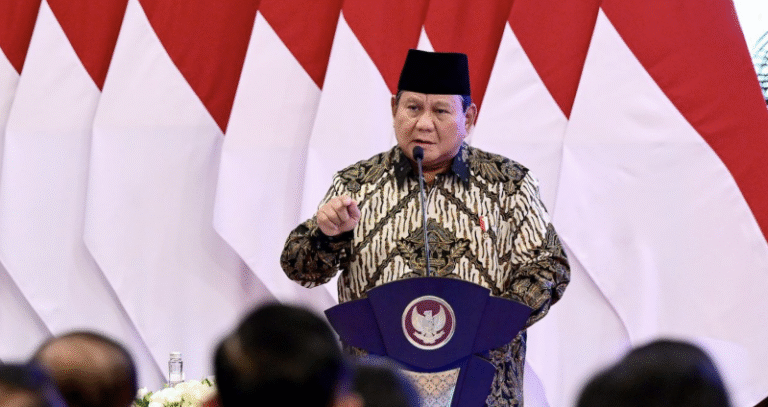
In an era where digital governance is paramount, a recent development underscores the importance of compliance within Indonesia’s electronic systems landscape. Seven private electronic system providers (PSE) have been issued warning letters by the Ministry of Digital Communication (Komdigi) for failing to register by the June 17, 2025 deadline. Alexander Sabar, Director General of Digital Space Oversight at Komdigi, has confirmed these warnings as part of an ongoing effort to ensure adherence to Ministerial Regulation Number 5 of 2020. This situation necessitates immediate attention from the involved entities to avert severe penalties, including potential access termination.
Understanding the Komdigi Registration Requirement
The Essence of Compliance
Compliance with the Komdigi registration requirement is not merely a bureaucratic obligation; it is a critical step towards ensuring the integrity and security of the digital environment within Indonesia. The Peraturan Menteri Kominfo Nomor 5 Tahun 2020 serves as the legal framework compelling all Penyelenggara Sistem Elektronik (PSE) to register with the Ministry of Communication and Digital (Komdigi). This regulation aims to maintain a comprehensive record of PSEs operating in the country, facilitating monitoring and oversight while promoting transparency and accountability in the digital sector.
Implications of Non-Compliance
The stakes for non-compliance are high. As highlighted by the recent warning letters sent to seven PSEs, failure to adhere to registration requirements can lead to severe consequences, including the potential for service disruption. The issuance of a Dapat Surat Peringatan underscores the urgency for these entities to act promptly. Beyond the immediate risk of access termination, non-compliant PSEs may face reputational damage, which can have a cascading effect on their business operations and customer trust.
Steps Toward Fulfillment
For PSEs yet to comply, the path forward is clear and involves immediate action. Engaging with Komdigi to understand the specifics of the required information and documentation is the first step. Following this, a timely submission of the necessary details can avert further penalties. As Alexander Sabar, Director General of Digital Space Supervision at Komdigi, emphasized, proactive engagement and compliance are paramount in avoiding harsher penalties, such as service blockage.
In summary, while the 7 PSE Belum Daftar ke Komdigi have received a stern reminder of their obligations, the path to compliance remains open. Prioritizing registration not only aligns with legal requirements but also fosters a more secure and regulated digital ecosystem.
Dapat Surat Peringatan: Why 7 PSE Have Been Warned
Context of the Warning
In recent developments, seven Penyelenggara Sistem Elektronik (PSE) received warning letters from Kementerian Komunikasi dan Digital (Komdigi), sparking significant attention. These entities include prominent names such as Philips, eBay, Nike, and Lenovo, each of whom failed to complete the mandatory registration process by the appointed deadline. This action is rooted in the latest regulations outlined in Peraturan Menteri Kominfo Nomor 5 Tahun 2020, which mandates all private scope electronic system providers to register with Komdigi. The failure to adhere to these stipulations can lead to severe repercussions, including potential service disruptions.
Importance of Compliance
Compliance with regulatory requirements is not merely a procedural obligation but a critical aspect of maintaining operational legitimacy and customer trust. The warning letters underscore the seriousness of these expectations. Komdigi’s approach aims to ensure that all PSEs align with national law, enhancing cybersecurity and protecting consumer data. The inability to meet these standards not only risks operational continuity for the companies involved but also poses broader implications for their business reputation.
Potential Consequences
As clearly articulated by Alexander Sabar, the Director General of Digital Space Supervision at Komdigi, failure to respond to these warnings could lead to stringent actions, including access termination. This is not an idle threat; it is an enforceable measure outlined in Pasal 7 of the aforementioned regulation. For the affected PSEs, it is crucial to take immediate and decisive action. Ensuring compliance will prevent more severe sanctions and safeguard business operations, underscoring the importance of adhering promptly to the registration requirements.
Analyzing the Implications for Non-Compliance
Regulatory Repercussions
When considering the consequences of non-compliance, it is imperative to understand the regulatory framework laid out by Kementerian Komdigi. As stipulated in Peraturan Menteri Kominfo Nomor 5 Tahun 2020, failing to register poses significant risks. The ultimate penalty for non-compliance is severe: access to digital services could be terminated. This drastic measure ensures that PSEs align with national standards and protect the integrity of Indonesia’s digital landscape. For the seven PSE that receive warning letters, immediate action is not just recommended; it’s essential to avoid these potential sanctions.
Economic and Operational Impact
Non-compliance can also have far-reaching economic implications. The termination of digital services can lead to substantial revenue loss, disruption of operations, and potential damage to brand reputation. For global entities like Nike or eBay, who are among the seven PSE involved, the stakes are even higher, given their extensive customer bases. Thus, addressing the warning from Kementerian Komdigi is not just a legal obligation but a strategic business decision. Ensuring compliance can safeguard against financial penalties and preserve consumer trust, which is invaluable in today’s competitive market.
Strategic Importance of Compliance
Beyond avoiding penalties, complying with registration requirements offers strategic advantages. Aligning with regulatory expectations enhances credibility and trust with consumers and partners. For the mentioned PSE, responding to the warning—”Dapat Surat Peringatan”—is crucial. It reflects a commitment to adhering to local laws and engaging constructively with regulatory bodies. By demonstrating responsibility and accountability, these entities can foster positive relationships with stakeholders and ensure a sustainable presence in the Indonesian market. In this context, swift and decisive action regarding compliance is not merely an operational necessity but a strategic imperative.
Spotlight on the 7 PSE: Which Companies Are Involved?
The Seven Entities Under Scrutiny
In the realm of digital operations, the recent warning from the Ministry of Communication and Digital (Komdigi) serves as a striking reminder for compliance adherence. Seven PSE (Penyelenggara Sistem Elektronik) providers have been singled out for failing to register with Komdigi, which mandates immediate attention. These entities, ranging from global giants to influential regional players, are pivotal in their respective industries and face potential access termination if non-compliance persists.
The Implicated Companies
The list of companies receiving a warning includes prestigious names, reflecting the widespread nature of this compliance issue. Here are the seven entities:
- PT Philips Indonesia Commercial: Known for its groundbreaking innovations in consumer electronics and healthcare solutions, Philips is a household name with a significant market presence.
- PT. DUNIA LUXINDO (bathandbodyworks.co.id): Bath & Body Works, renowned for its fragrance and skincare offerings, has a substantial consumer base in Indonesia, necessitating urgent compliance to sustain its operations.
- ebay, Inc.: As a global e-commerce leader, eBay needs no introduction. Both its website and app are crucial for millions of users globally, making adherence to these regulations critical for continued service provision.
- Nike, Inc.: With both its online platform and app under scrutiny, Nike stands at the forefront of the sportswear industry, where operational speed and compliance are equally vital.
- Microsoft Corporation (xbox.com and application): The Xbox platform is a cornerstone for gaming enthusiasts. Ensuring registration compliance is not only a regulatory requirement but also essential for community engagement.
- KLM Royal Dutch Airlines (klm.com and application): As a leader in the aviation sector, KLM’s adherence to digital regulations is imperative for maintaining trust and seamless service delivery.
- PT. Lenovo Indonesia (lenovo.com and application): Renowned for its technological advancements, Lenovo must ensure compliance to continue providing its cutting-edge products to consumers.
The Path Ahead
Each entity must urgently respond to the warning letter to avoid further complications. With the deadline looming, the importance of aligning with Komdigi’s requirements cannot be overstated. As these companies work towards compliance, the broader industry watches closely, understanding that this serves as a benchmark for digital operational norms and practices. The emphasis lies not only on regulatory adherence but also on fostering trust and reliability within the digital ecosystem.
What’s Next for the 7 PSE That Haven’t Registered with Komdigi?
Immediate Actions Required
For the seven PSE that have yet to register with Komdigi, the urgency of the matter cannot be overstated. Receiving a warning letter is not merely a procedural step; it is a prelude to potential sanctions. The Ministry of Communication and Digital Information (Komdigi) has made it clear that non-compliance with the registration requirements will lead to significant consequences, including the possibility of service access termination. Therefore, these PSE must prioritize their registration and compliance efforts to avoid such disruptive outcomes.
Long-term Compliance Strategy
Beyond the immediate need to register, these companies should consider implementing a long-term strategy to maintain compliance with digital regulations. This involves not only adhering to current registration requirements but also staying informed about any changes in the regulatory landscape. Continuous engagement with Komdigi will ensure that these entities remain compliant and avoid future penalties. Establishing a dedicated compliance team could be a proactive step to monitor regulatory developments and manage necessary updates effectively.
Potential Implications for Business Operations
Failure to address the warning promptly could lead to the suspension or complete blocking of their digital services, affecting both their operational capabilities and their customer base. Such disruptions would not only incur financial losses but could also damage brand reputation. Therefore, it’s crucial for these companies to act swiftly. Engaging with legal advisors who specialize in digital regulation can provide the necessary guidance to navigate these challenges. Ultimately, compliance is not just about avoiding sanctions; it’s about securing a sustainable position in the digital economy.
Conclusion
As you reflect on the pressing situation faced by these seven private electronic system operators, the urgency of compliance with the Ministry of Communication and Informatics’ regulations becomes undeniable. The warning letters serve as a critical reminder of the obligations that must be met to avoid severe consequences, including access termination. Immediate action is not merely a bureaucratic necessity but a strategic imperative to safeguard operational continuity and maintain digital integrity. By promptly addressing these compliance requirements, you ensure alignment with regulatory expectations and demonstrate a proactive commitment to responsible digital governance in Indonesia’s evolving landscape.



